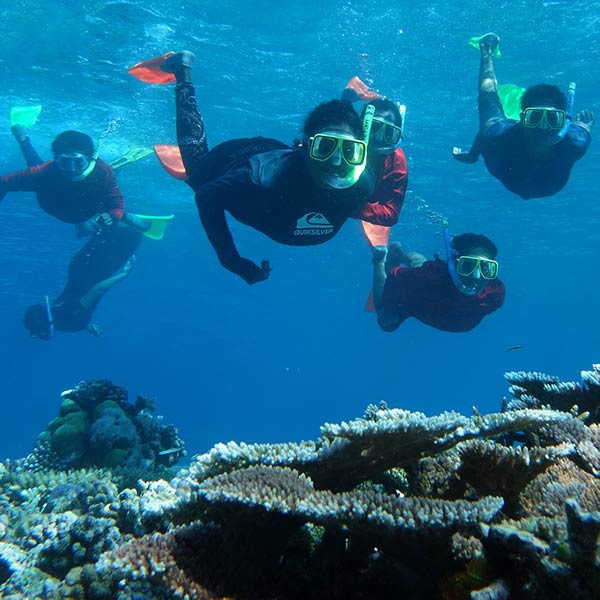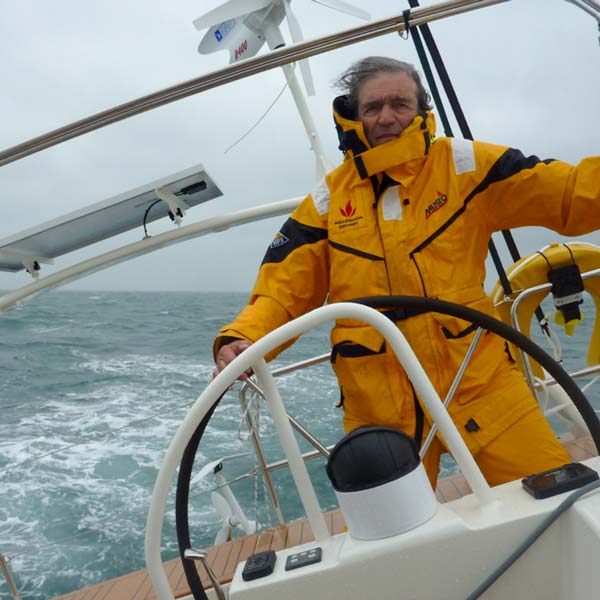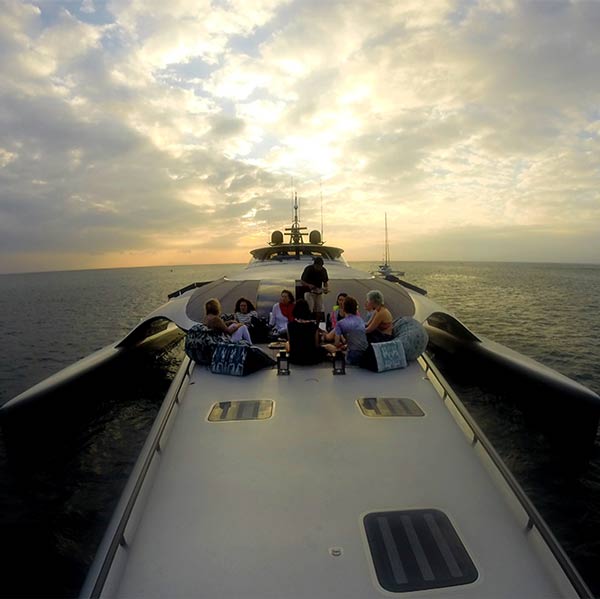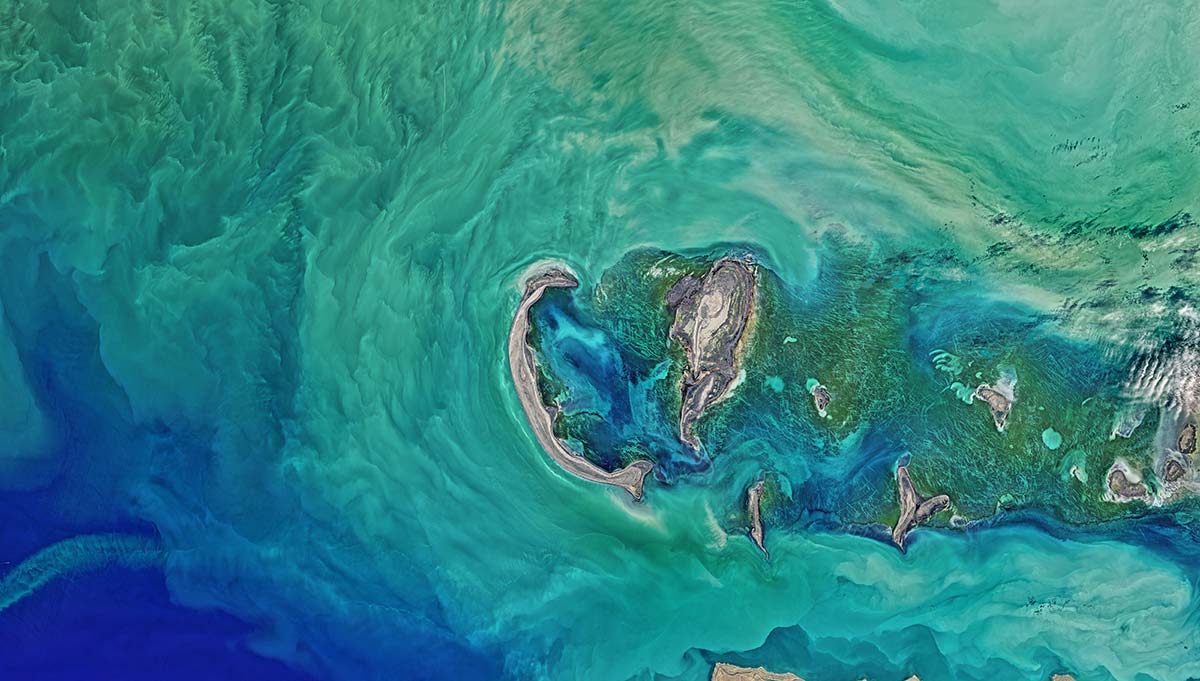
Caspian Sea

Caspian Sea
An industry united by the water
A scan of activity across the industry shows a healthy increase in environmental initiatives.
“It’s always been my vision that the people that profit and associate with the sea should come together to save it.” So says George Duffield, founder of Blue Marine, a foundation established in 2010 to do just that. “The owners are at the top of the pyramid,” explains Duffield, “but everybody around them – the builders, the decorators, the brokers, and the ports – should unite to save the sea.”
Increasingly, superyachting companies are jumping on board. Blue Marine’s partners include the likes of shipbuilders such as Lürssen and Benetti as well as renowned designers such as Winch. “Consumers today are utterly focused on only really supporting businesses that are doing good,” says “You cannot actually run a business anymore and not have a real focus on the planet. People are looking to businesses to lead the way.”
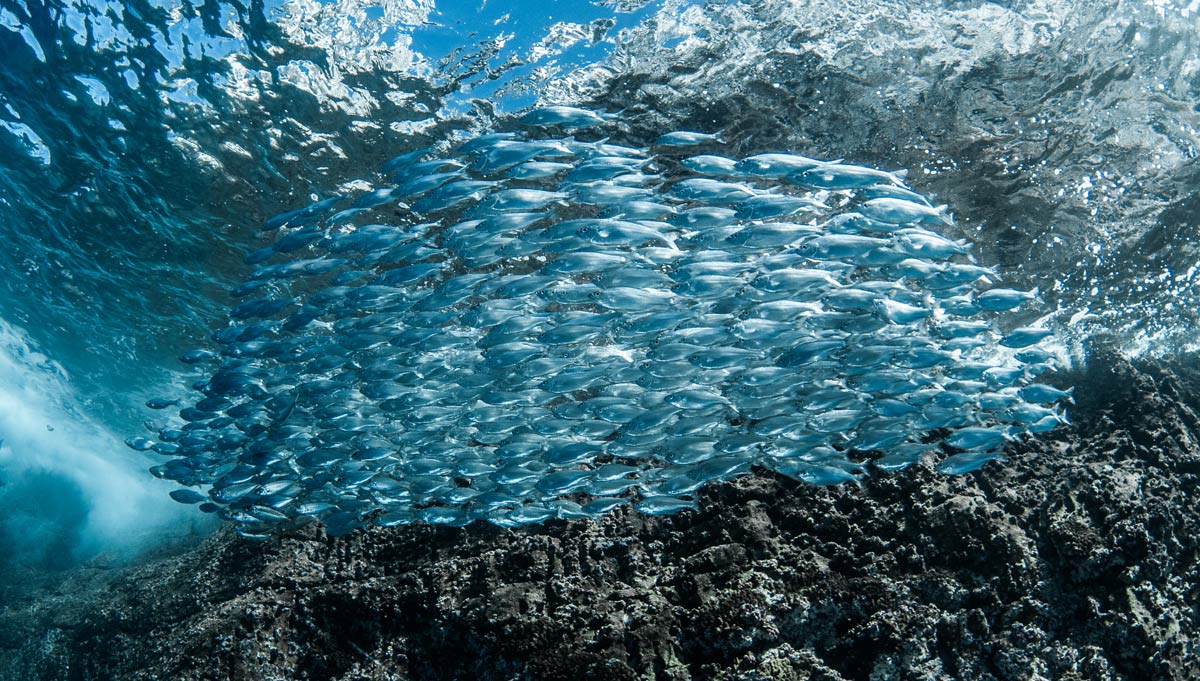
Photo: Rory Moore

Photo: Rory Moore
Once upon a time, that may have been an exaggeration – but not anymore. Numerous studies, including one recently carried out by J. Walter Thomson Intelligence, find that most consumers today actively expect brands to be sustainable and are willing to pay more to support those that are. Going green is good for businesses as well as the planet.
Blue Marine’s aim is to put 10% of the world’s oceans under protection by 2020 and 30% by 2030. “The number one crisis in the ocean is over fishing; we are literally taking everything out of the sea to eat it. This is the one really planet-scale problem that we can fix,” says Duffield. “This is a solvable problem. It’s not that complicated.” To prove it, Blue Marine created the largest no-take (no fishing allowed) marine reserve on the planet for the “price of a really high-end tender on a superyacht.”
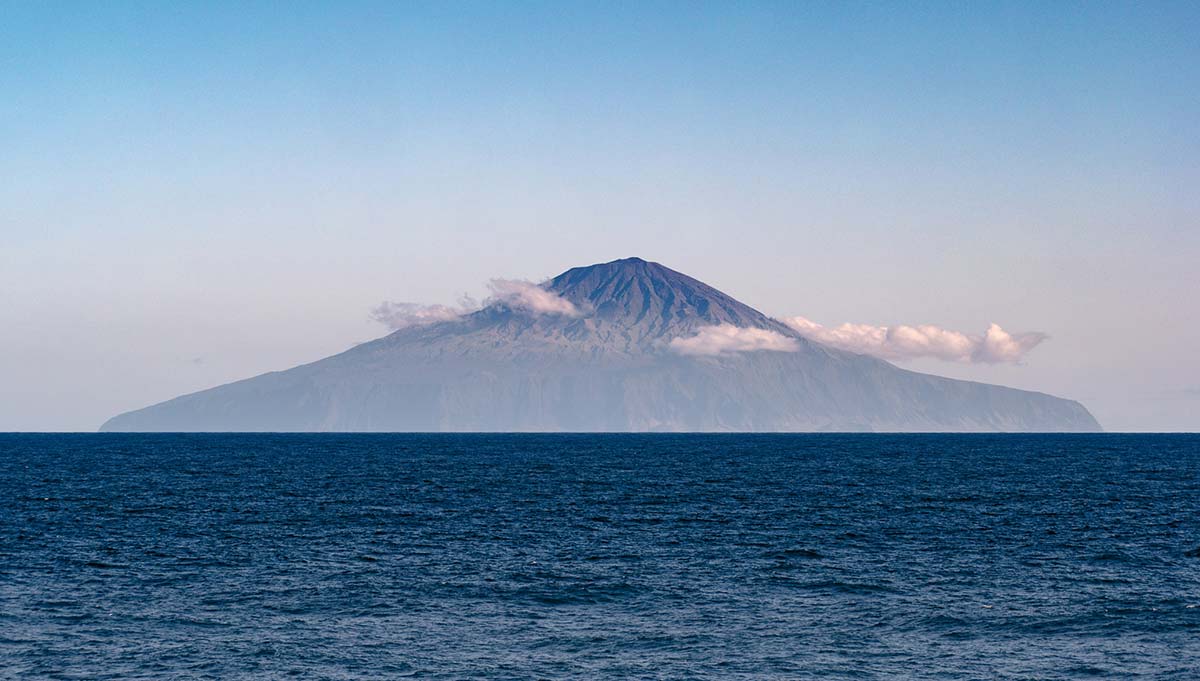
Tristan Da Cunha

Tristan Da Cunha
Other projects have included saving Beluga sturgeon and Caspian salmon on the brink of extinction in Azerbaijan and protecting vulnerable groupers in the Maldives. Next on the map for the foundation is Tristan Da Cunha, a remote archipelago in the southern Atlantic. “It’s the most remote inhabited island in the world and it’s pristine. It’s got whales and elephant seals and we are going to protect that with the help of our partners,” says Duffield.
A scan of activity across the industry shows a healthy increase in other environmental initiatives beyond Blue Marine. Camper & Nicholsons is one example of a major player leading the way, recently announcing their partnership with Mission Blue, a non-profit ocean conservation organization. “We realised there was one thing we were not thinking about enough about: and funnily enough it was the ocean, the one thing that makes our existence possible, as a business but also as humans!” says Paolo Casani, CEO.
Led by Dr Silvia Earle, the initiative offers support to a collection of marine protected areas that they have termed Hope Spots. They span from Ascension Island in the southern Atlantic to the Chagos Archipelago in the Indian Ocean. These Hope Spots are places that have been deemed crucial to ocean health and Mission Blue aims to provide support for these areas as well as improve public awareness. “The 150 people who work for Camper & Nicholsons everyday will now look at the beach and the sea in a slightly different way and truly help us protect it and preserve the waters,” says Casani.
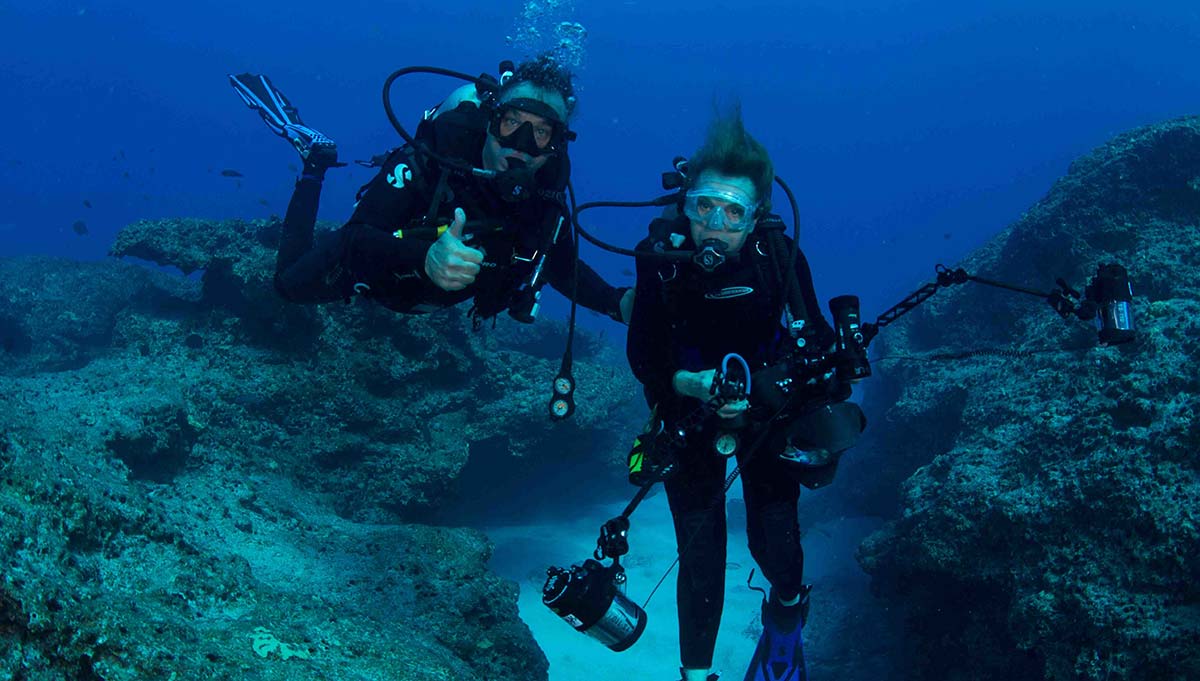
Dr Silvia Earle diving

Dr Silvia Earle diving
There are far more initiatives besides. Yacht brokerage Fraser recently partnered with the Plastic Oceans Foundation, the charity behind the award-winning documentary film “A Plastic Ocean”, to help educate people about the dangers of plastic pollution. Fraser subsequently got together with CanO Water to encourage yachts to use canned water instead of plastic bottles. “For the past 70 years, the oceans have provided Fraser with the fundamental resource for our industry,” says CEO Raphael Sauleau. “For us and the wider yachting industry to continue to thrive and for our clients to continue to enjoy the incredible experiences on board their yacht, we need to address the issue of plastic pollution in our oceans.” Beyond Fraser, there is also Moonen with its Plastic Soup Foundation partnership, Y.CO with its #Clearwater initiative and the One Ocean Foundation founded by the Costa Smeralda Yacht Club in Sardinia.
Industry media company BOAT International have also lent their support to the oceans, using their platform to host events and build a stronger bridge between the yachting industry and the world of marine conservation. During its annual Ocean Talks event at the Royal Geographic Society this year, it pledged to matchmake scientists in need of access to yachts with yachts happy to host them or their equipment. The response was overwhelming and they’re now working on expanding the project into its second phase, working with more owners and researchers to make fruitful pairings. “Every yacht owner I know is passionate about the ocean and wants to protect it. BOAT International is in a privileged position to be able to help them, and others in the industry – from designers through to shipyards and charter companies. We will continue to do whatever we can and will work alongside others to facilitate real change,” explained editor Stewart Campbell. Alongside their Ocean Talks event, BOAT International also hold their annual Ocean Awards which recognises those who have improved the future of the oceans – from scientists to yacht designers and builders, conservation campaigners and leading public figures.
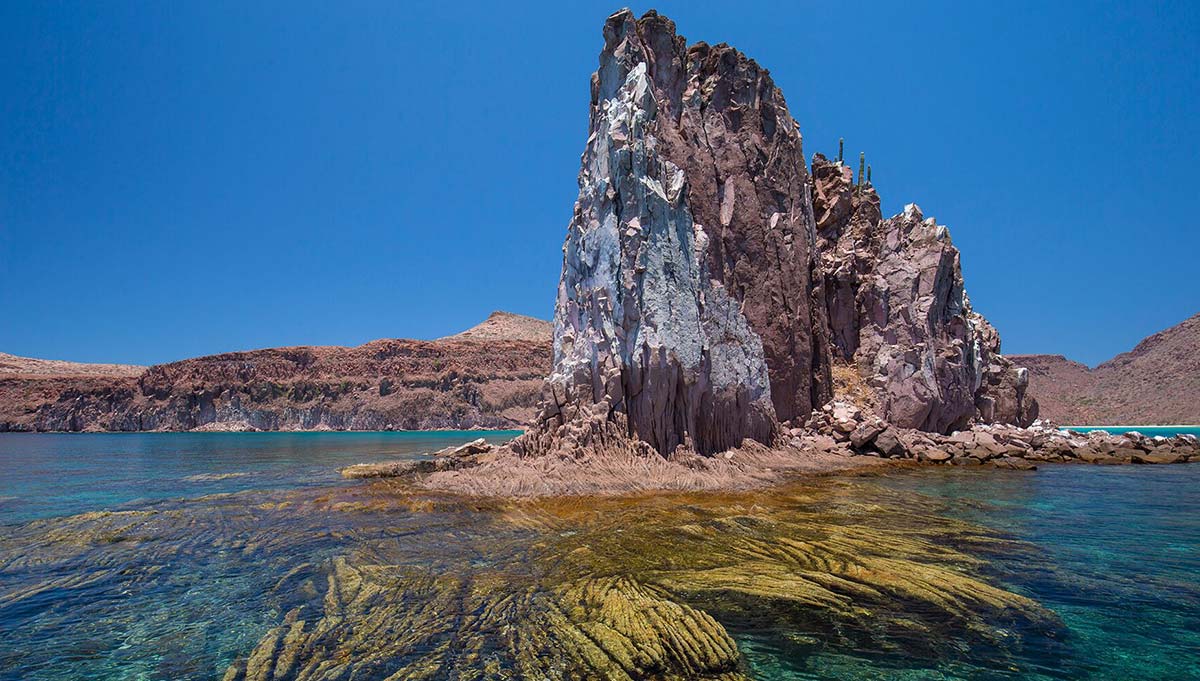
Coastline near La Paz Mission Blue Hope Spot. Photo: Kip Evans

Coastline near La Paz Mission Blue Hope Spot. Photo: Kip Evans
Water Revolution Foundation, meanwhile, was founded in late 2018 to ‘drive and accelerate sustainability in the superyacht industry,’ and already has support from a wide range of industry partners. “Sustainability is not a competitive advantage; it is a responsibility, a minimum standard that we need to continuously improve upon collectively,” explains Robert van Tol, the foundation’s executive director.
The inaugural year saw the foundation develop a superyacht assessment tool that measures the environmental impact of design and build choices, including carcinogens, exotoxins and water use, allowing for more informed choices to be made. Alongside the software tool, the foundation launched the first sustainability course tailored to the superyacht industry. Projects for year two include a database of verified sustainable solutions and yacht rating system allowing for the comparison of the green credentials of yachts. “Our industry is well-positioned to take the lead with smart and affluent clientele and our unique connection with the ocean,” says van Tol.

